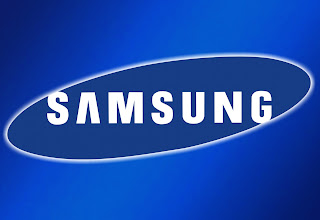Ben Uzor Jr
YahSat, a wholly owned subsidiary of the Mubudala
Development Company, with reported revenues of AED 27.9 billion (about $7.59
billion) in 2011, is spearheading the resurgence of satellite business in
Nigeria. The satellite communications company is pushing the boundaries of
competition further, with strategic pricing and an investment drive that is
expected to put them in prime position to assist in deepening broadband
availability. The firm is entering Nigeria’s internet market with a range of
high speed, flexible and cost effective packages, boasting of speeds as high as
15 Mbps, and monthly rates as low as N4, 950, suited to servicing the most
underserved market where internet connectivity is scarce, and even some of the
better connected urban areas for backup solutions.
The Federal Communications Commission (FCC) of the United
States of America defines broadband as data transmission speeds of at least 4
megbits per second (mbps) downstream, from the internet to the users computer,
and one megabit upstream. In recent times, the growing number of undersea
cables on Nigeria’s shores has left many to believe that satellite business is
no longer a feasible venture. Analysts have argued that the importance of
satellite in the entire broadband ecosystem is waning, as fibre cables
gradually become rooted in the country. According to them, the market for
satellite is gradually being eroded due cheaper fibre optic services. YahSat
however thinks otherwise.
A senior executive of the satellite firm who pleaded anonymity
told Benuzorreports, at the NigeriaCom conference and exhibition in Lagos, that
internet connectivity in Nigeria would continue to ride on the back of
satellite for the next 15 years. “Nigeria has a low broadband penetration rate.
The country needs satellite to complement fibre-optic infrastructure roll-out
because there are so many areas in the country that fibre optics cannot get to,
but satellite can”. With an estimated investment of about N365 billion
($2.24bn) in underwater cables in the country over the past five years,
Nigerians are yet to feel the impact of this investment and are starved of
access to reliable and affordable broadband services. Analyst say the absence
of distribution networks and backbone network needed to move the available
bandwidth capacity across the length and breadth of Nigeria has slowed down
internet growth.
They further argue that Nigeria’s low mobile Average
Revenue per User (ARPU) is discouraging investment in last mile networks,
required to take internet capacity to the end user. YahSat, according to
industry analysts is awake to the reality that Nigeria still requires huge
investment to address the lastmile challenge, and explains why they are coming
into this market. Lanre Ajayi, president, Association of Telecommunications Companies
of Nigeria (ATCON) told Benuzorreports, in a phone interview, that the
emergence of underwater cables only means expanded business for satellite
operators. According to Ajayi, satellite technology is extremely effective in
reaching places where the volume of traffic would not justify a fibre
connection.
“The tendency is to think that the submarine cables will
eliminate satellite communication, but it might actually expand the business of
satellite in Nigeria. The truth is that fibre cannot get everywhere. “Most of
the national fibre backbones and fibre rings would run through large cities and
towns. But for the rural populace, the way for them to get internet
connectivity would be through satellite technology”, Ajayi said. George Opara,
deputy managing director, Hyperia, a distributor, noted that YahSat would
indeed assist in reducing the high cost of broadband internet service in
Nigeria. “We have been working for two to three years to bring this solution
into the market. Hyperia already has major VSAT products in the C-band and KU
band. When we saw the importance of YahSat’s project and how it’s going to help
reduce the cost of internet broadband services, Hyperia Limited become very
much interested.
“We have tested the C and KU bands and with emergence of
KA band, we have seen immense potential” , Opara said. The satellite service,
according to him, would complement the recently launched NIGCOMSAT-2 satellite,
enabling more Nigerians to connect to the information superhighway without
having to wait for terrestial systems to roll out expensive fibre networks or
suffer service cut. Even in areas of heavy rainfall, Opara pointed out that the
technology would adjust the power required by virtue of the advanced modulation
feature, which enables dynamic rain-fade migration to ensure the link is
maintained. But more importantly, he said the service is cost-efficient, due to
the affordability of terminals and service pricing, as well as the quick
installation time-line, owing to the small antenna size which makes it easy to
install.
YahClick, which is the name of the solution, is offered
through the Y1B satellite, which is YahSat’s second satellite that was launched
successfully into orbit on 24th April 2012. YahClick is available across
specific regions in 28 countries in South West Asia, Africa and the Middle
East: Afghanistan, Angola, Armenia, Azerbaijan, Bahrain, Cyprus, Egypt, Iran,
Iraq, Jordan, Kenya, Kuwait, Lebanon, Nigeria, Oman, Palestine, Pakistan,
Qatar, Saudi Arabia, South Africa, Sudan, South Sudan, Syria, Tanzania, Turkey,
UAE, Yemen, and Uganda. Benuzorreports gathered that Mubudala’s strong capital
base places YahSat in good stead to play a pivotal role in President Goodluck
Jonathan’s transformation strategy, by providing more Nigerians, especially
those in underserved and unserved areas, with efficient and reasonably priced
broadband internet service, via satellite technology.




